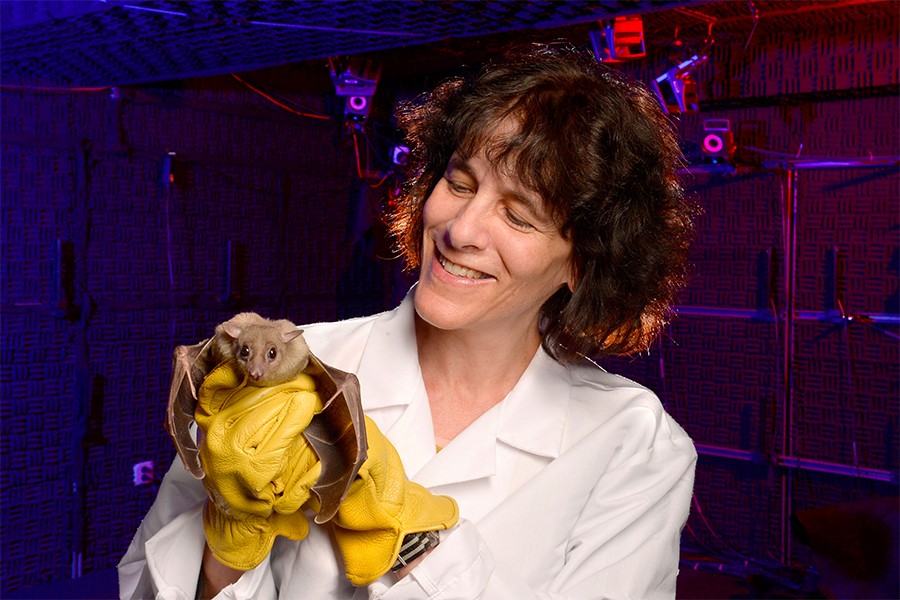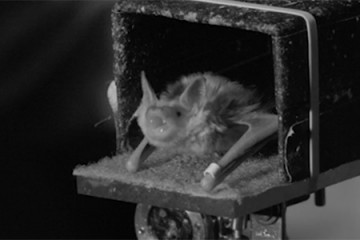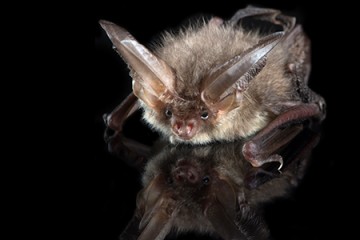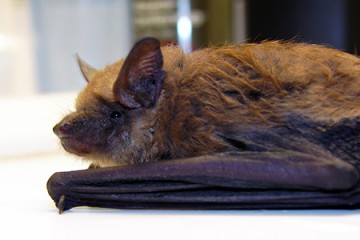A team of Johns Hopkins University neuroscientists and engineers has won one of 19 National Science Foundation awards intended for research that uses cross-disciplinary approaches to "push the frontiers of brain science."
Researchers will use the $1 million, four-year grant to attempt to determine how free-flying echolocating bats process sound to navigate their environment.
The research team includes Cynthia Moss, a neuroscientist in the Department of Psychological and Brain Sciences who studies bats; Rajat Mittal, a professor in the Department of Mechanical Engineering; Mounya Elhilali, an associate professor in the Department of Electrical and Computer Engineering who studies how the brain processes sound; and Susanne Sterbing-D'Angelo, an assistant research professor who works with Moss in the bat lab.
"We are bringing together our expertise to pursue what we believe is a novel and exciting project," Moss said. "At any given moment we're hearing all sorts of things—people talking, animals making noise, traffic—and we have to make sense of it. Because bats rely so heavily on sound to guide their behavior, they are a good model to figure out how all animals use sound to guide behavior."
Specifically, the team will study how the bat brain processes sound information to guide flight navigation. They will develop models that precisely track the relationship between the sounds a free-flying bat emits, the echoes returning to its ears, the bat's brain activity as it processes echoes, and the bat's attention to objects in its environment.
The NSF intends these new awards to emphasize:
- Neuroengineering and brain-inspired concepts and designs
- Individuality and variation
- Cognitive and neural processes in realistic, complex environments
- Data-intensive neuroscience and cognitive science
"These teams are combining their expertise to try to forge new paths forward on some of the most complex and important challenges of understanding the brain," Ken Whang, NSF program director in the Computer and Information Science and Engineering Directorate, said in a release. "They are posing problems in new ways, taking intellectual and technical risks that have huge potential payoff."
Posted in Science+Technology
Tagged brain science, cynthia moss, bats, echolocation












